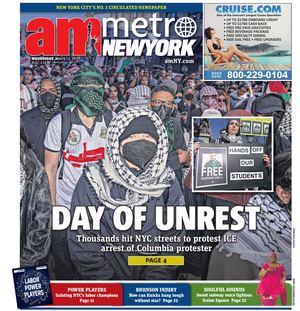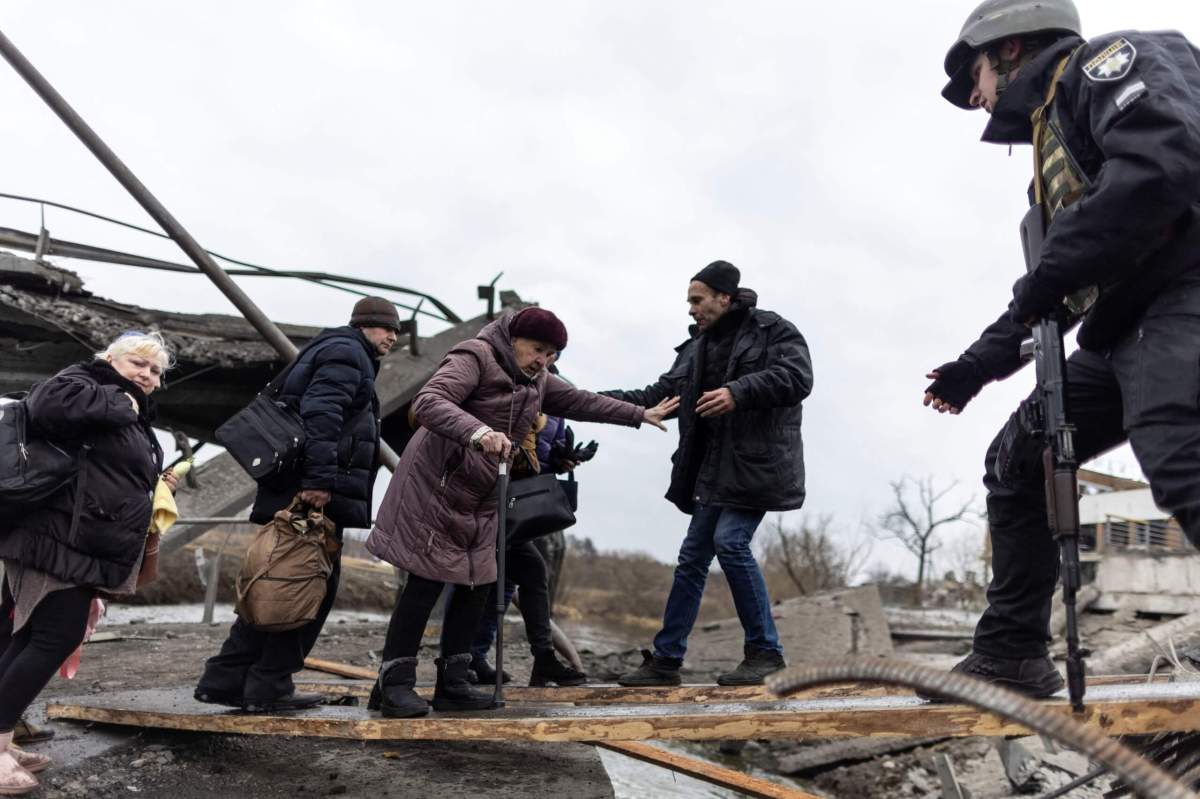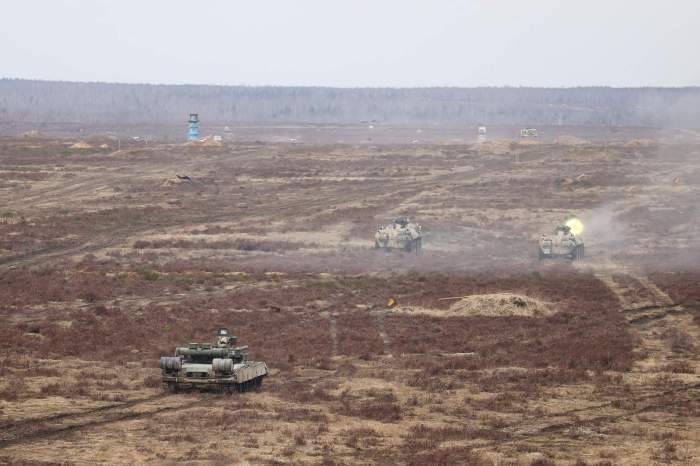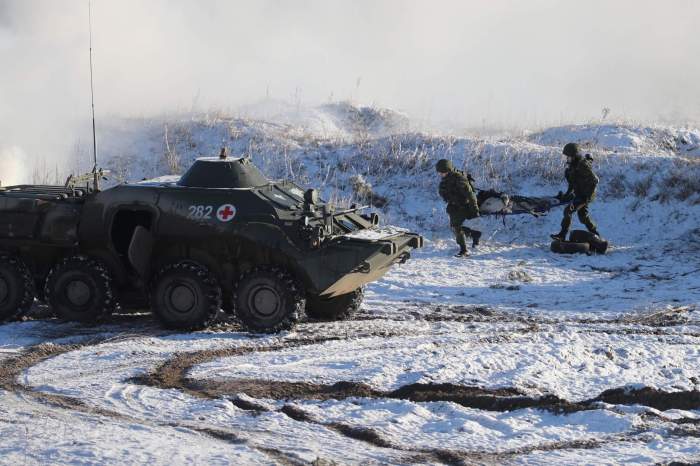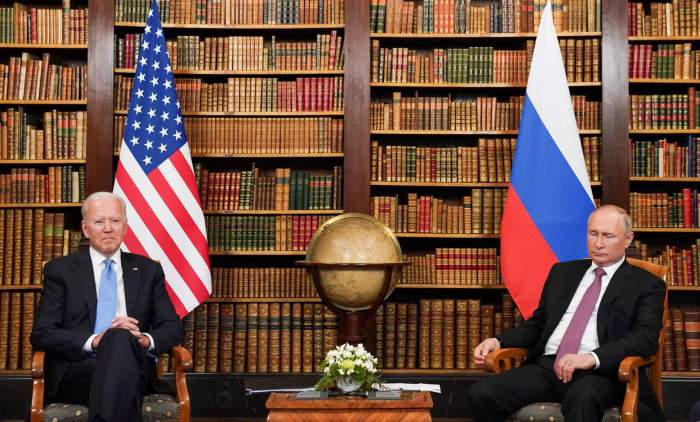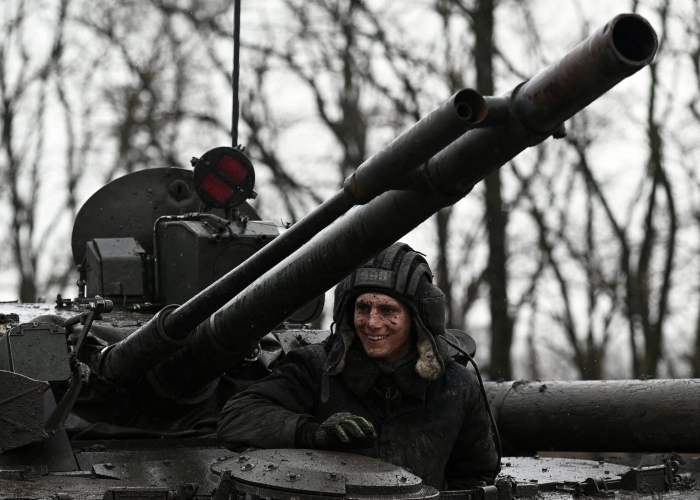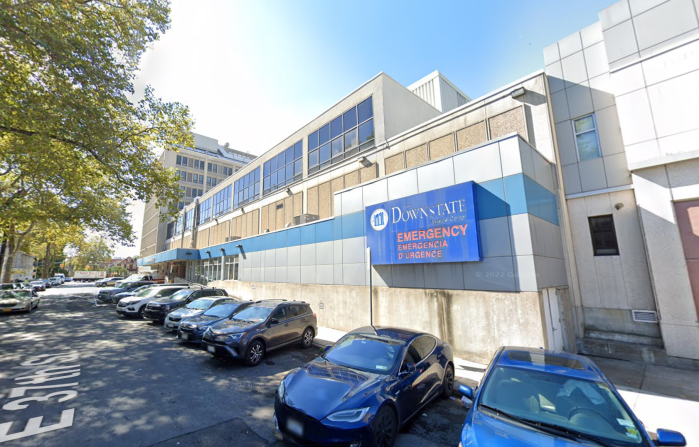Russia announced new “humanitarian corridors” on Monday to transport Ukrainians trapped under its bombardment – to Russia itself and its ally Belarus, a move immediately denounced by Kyiv as an immoral stunt.
Both sides said a third round of talks were due at an undisclosed location in Belarus on Monday. Two previous rounds yielded little beyond pledges to open routes for humanitarian access that have yet to be successfully implemented.
Russia’s announcement of new corridors came after two days of failed ceasefires to let civilians flee the besieged city of Mariupol, where hundreds of thousands are trapped without food and water, under relentless bombardment.
The new “corridors” would lead from the capital Kyiv, the eastern cities of Kharkiv and Sumy, as well as Mariupol, Russia’s defense ministry said.
According to maps published by the RIA news agency, the corridor from Kyiv would lead to Belarus, while civilians from Kharkiv would be directed to Russia. Moscow would also provide an airlift from Kyiv to Russia, the ministry said.
“Attempts by the Ukrainian side to deceive Russia and the whole civilized world … are useless this time,” the ministry said.
A spokesperson for Ukrainian President Volodymyr Zelenskiy called the move “completely immoral” saying Russia was trying to “use people’s suffering to create a television picture.”
“They are citizens of Ukraine, they should have the right to evacuate to the territory of Ukraine,” the spokesperson told Reuters.
Russia’s invasion has been condemned around the world, sent more than 1.5 million Ukrainians fleeing abroad, and triggered sweeping sanctions that have abruptly isolated Russia to a degree never before experienced by such a large economy.
Global share prices plunged on Monday after Washington said it was considering extending its sanctions to Russia’s energy exports, until now carved out from trade bans.
Russia is the world’s biggest exporter of oil and gas. Brent crude prices surged above $139 a barrel on Monday, the closest they have come in 14 years to the all-time high of $147. Investment banks say prices could approach $200 this year if Russian supply evaporates, with dire consequences for the global economy.
Both Russia and Ukraine are also among the world’s main exporters of grain, edible oils and industrial metals. The war threatens to send global food prices skyrocketing and complicate industries’ recovery from the pandemic crisis.
Russia denies deliberately targeting civilians. It calls the campaign it launched on Feb. 24 a “special military operation” to disarm Ukraine and remove leaders it describes as neo-Nazis. Ukraine and its Western allies call this a transparent pretext for an invasion to conquer a nation of 44 million people.
The general staff of Ukraine’s armed forces said Russian forces were “beginning to accumulate resources for the storming of Kyiv”, a city of more than 3 million, after days of slow progress in their main advance south from Belarus.
‘No peaceful place on this Earth’
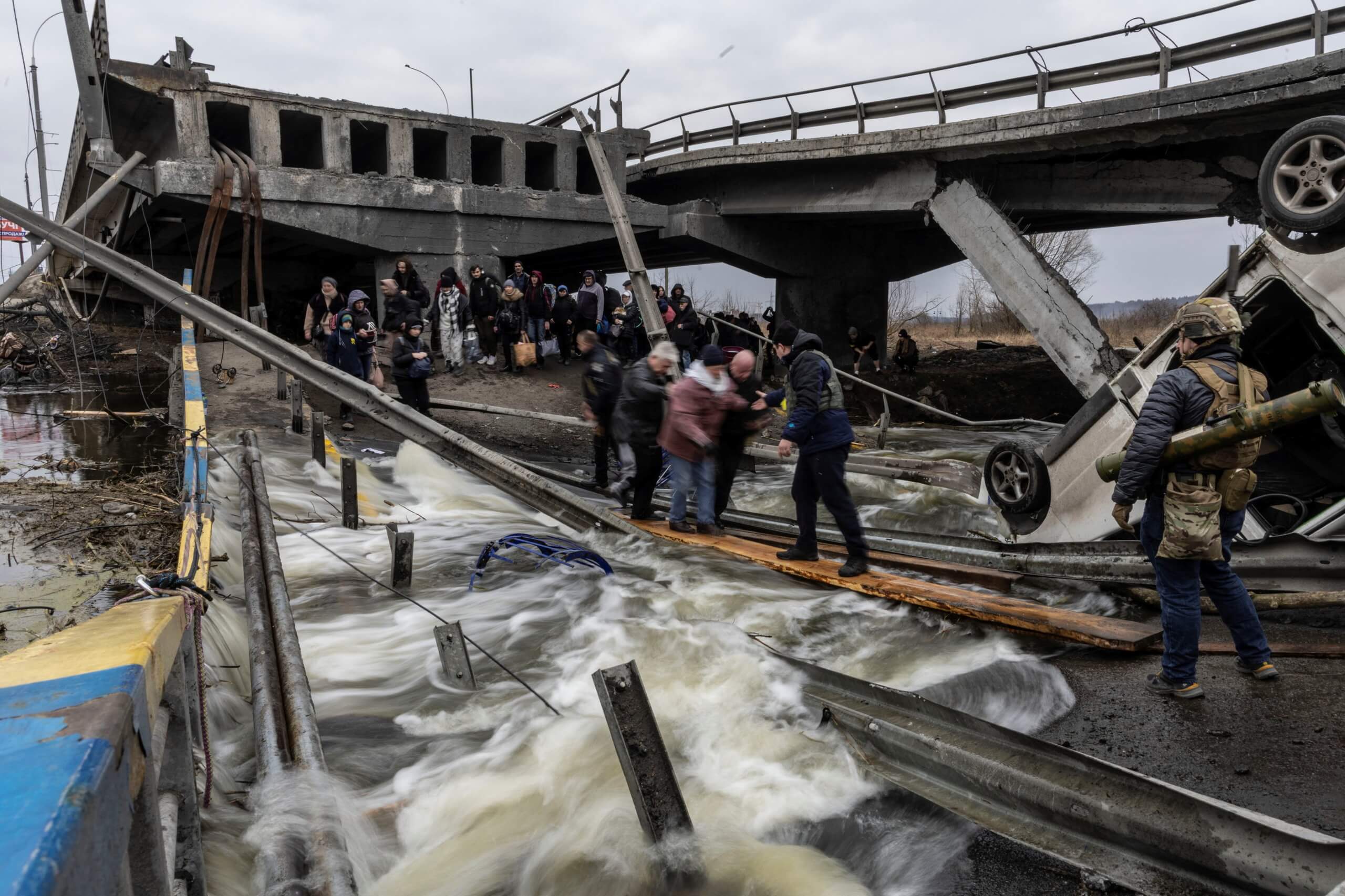
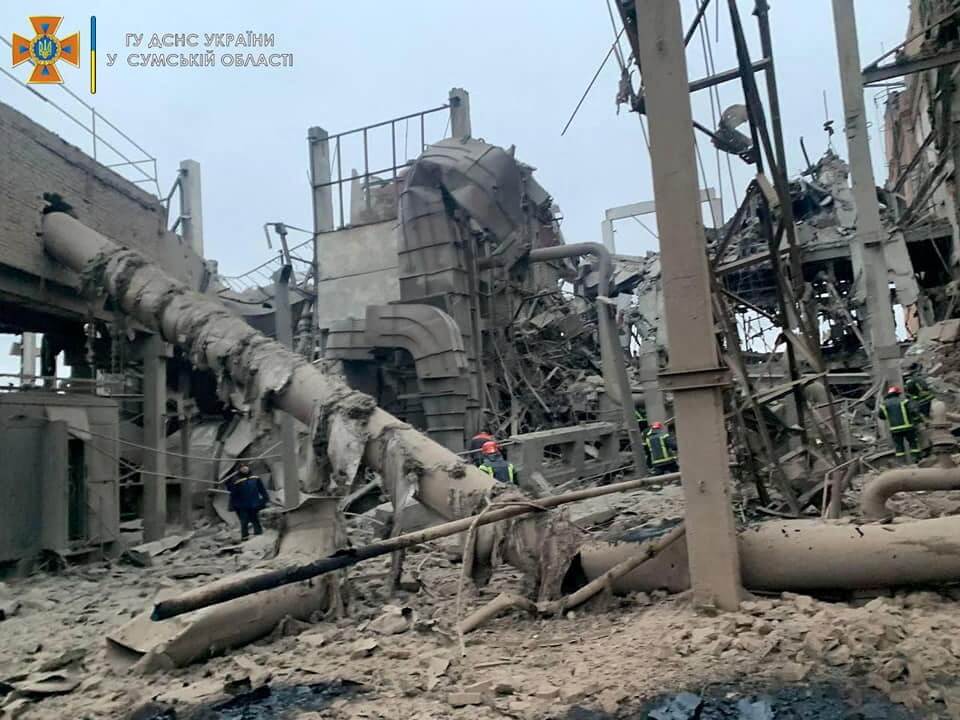
International attention has focused on Irpin, a Kyiv suburb where residents have been scrambling across a river to flee Russian bombardment. In a speech to the nation late on Sunday, Zelenskiy described one family cut down there as they tried to escape.
Russians responsible for such atrocities would never be forgiven, he said. “For you there will be no peaceful place on this Earth, except for the grave.”
In a later address, Zelenskiy called for a blanket ban on trade with Moscow: “Boycott imports to Russia. If they do not adhere to civilized rules, then they should not receive goods and services from civilization. Let the war feed them.”
The United Nations called for safe passage to reach people cut off from lifesaving aid across Ukraine. In a humanitarian update it described one psychiatric hospital 37.3 miles from Kyiv, running out of water and medicine with 670 people trapped inside, including bedridden patients with severe needs.
While Russia’s advance in the north on Kyiv has been stalled for days with an armored column stretching for miles along a highway, it has made more progress in the south, pushing east and west along the Black and Azov Sea coasts.
In Mariupol, residents still trapped are sleeping underground to escape more than six days of shelling by Russian forces that has cut off food, water, power and heat.
About half of them were due to be evacuated on Sunday, but that effort was aborted for a second day when a ceasefire plan collapsed with both sides accusing each other of failing to stop shooting and shelling.
Ukrainian authorities said on Monday the southern city of Mykolayiv was being shelled. Zelenskiy has warned that Russia’s next big target could be Odessa, an historic Black Sea port of 1 million people.
Moscow has acknowledged nearly 500 deaths among its soldiers. Ukraine says the true toll is many thousands. Death tolls cannot be verified, but footage widely filmed across Ukraine shows burnt-out wreckage of Russian armored columns and Ukrainian cities reduced to rubble by Russian strikes.
In Russia itself, the authorities have imposed a near total blackout on non-official information. The last significant independent broadcasters of the post-Soviet era were shut last week, and a new law threatens long jail terms for reporting deemed by the authorities to discredit the military. Many foreign news organizations have suspended reporting from Russia.
Western countries have sent weapons to Ukraine but have so far rejected Kyiv’s calls for a no-fly zone, which NATO leaders say would lead to open conflict with Russia.
“Apparently, it’s a pleasure for our friends to sit in a cozy cafe in Paris, Berlin, New York or Budapest, slowly drinking coffee with a croissant and looking at photographs of Ukrainian cities that are being destroyed at that very moment,” Zelenskiy adviser Mihkhailo Podolyak said in a social media post. “But our cities, dying, are still fighting.”
